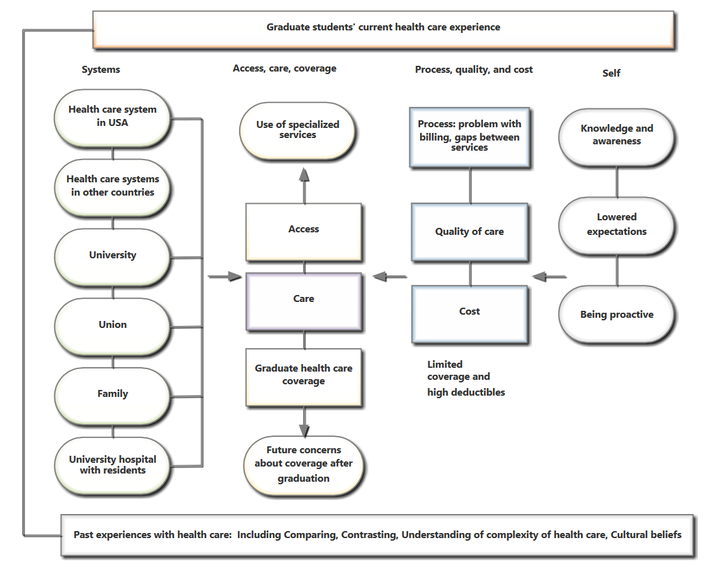A Constructivist Study of Graduate Assistants' Healthcare Experiences in a Research University

Abstract
This constructivist study explores 16 graduate assistants’ (GAs) healthcare experiences and uses grounded theory to create a model of graduate assistants’ experiences with university-provided healthcare in a large research university. The model is composed of four broad components: (a) systems; (b) access, care and coverage; (c) knowledge, quality and cost; and (d) self. Graduate assistants’ needs and expectations constantly negotiate various systems in the model. Expanding upon the limited research regarding graduate student healthcare, this study provides implications for higher education administrators and policy makers. Based on our study findings we argue that it is not sufficient for university administrations to simply provide paid health insurance “options” without robust support systems on campus. Because students are often stressed out, lack time and energy, and find it hard to navigate the complicated systems of profit-driven health care industry, the lack of direct support in graduate students’ day-to-day healthcare needs can cause tremendous loss on their success and productivity. Hence, universities have tremendous opportunities to better understand and address their graduate students’ real needs so as to add value to institutional success and productivity.